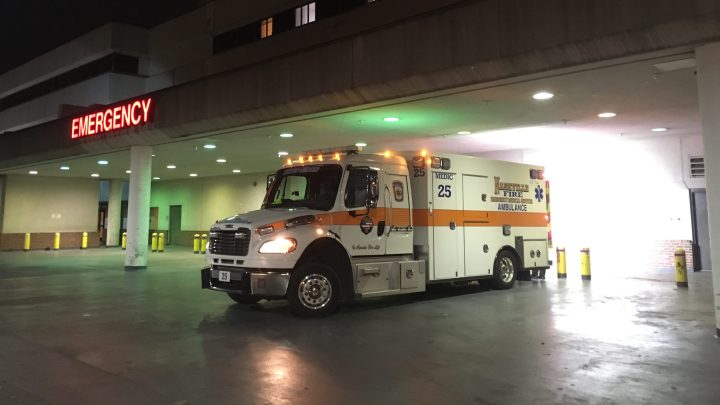
Despite legislation against them, surprise medical bills can still … surprise
Despite legislation against them, surprise medical bills can still … surprise

When Blake Richard of Fort Worth, Texas, opened the bills for his newborn’s hospital care, he was especially surprised, because surprise medical bills supposedly went away in 2022. But he and his partner had nearly $2,000 in physician charges.
“We were like, ‘Whoa,’” he recalled. “’Where did this come from? I thought we had insurance.’”
Richard, who works in a physician practice himself, was so stunned that he submitted the bill to Kaiser Health News for its Bill of the Month series.
The physicians who treated their newborn, it turned out, were out of network. Richard was billed for the remainder of what their insurance wouldn’t pay — despite the No Surprises Act, which had already taken effect. He spent months writing letters and pushing back, pointing to the new law. And the physician group backed off.
“As a patient in the middle of a situation, my thought process is like, I don’t care who is responsible for what,” he said. “What I do know is what’s happening to me shouldn’t be happening. It’s not fair. So you two — whoever it is — need to figure it out. I shouldn’t be in the middle of this.”
Both the billers and the health plans agree that patients like Richard should not be in the middle. While there may still be some people getting these out-of-network bills inappropriately, the law says health plans and providers are supposed to be working out their differences in arbitration known as independent dispute resolution.
The wrangling largely remains behind the scenes at this point. But there’s far more wrangling than the government expected.
In its report on the first six months in operation, the Centers for Medicare & Medicaid Services said they did not expect so many bills in arbitration — more than 90,000 in six months. The backlog is only getting bigger.
Emergency physician groups are among the biggest users of this new resolution process. So many bills have been disputed that companies are being accused of “spamming” the system to break it.
Patrick Velliky, vice president of government affairs for Envision Healthcare, calls the accusations of sabotage “nonsense.” Envision is one of the biggest emergency department staffing companies in the country. It was frequently accused of trying to profit from surprise medical bills, and now it’s among the top users of the new resolution process.
“Believe me, we are not helped by submitting claims that are ineligible. There’s nothing to be gained by us flooding the system,” Vellicky said. “Alternatively, there is lots to be gained by the payers.”
Health plans, often known as “payers,” are using their new leverage to demand lower rates from doctors and canceling contracts, forcing physicians out of network, Vellicky said.
Health plans acknowledge they are in a stronger position now.
“That’s really what the No Surprises Act set out to do,” said Adam Beck, vice president of employer health plans and initiatives with the trade group America’s Health Insurance Plans, known as AHIP. “It leveled the playing field in a way that, admittedly, I think some providers may find uncomfortable.”
Beck added that he’s not surprised to hear grousing from physician groups and health systems, who are trying to blunt their losses from the new law.
But there are growing concerns that patients still won’t see their costs go down.
The arbitration itself is an expense. The federal government has increased the fee this year from $50 to $350. Patricia Kelmar, who directs health care campaigns for the Public Interest Research Group, said the ban on surprise medical bills was a big disruption that should be good for consumers — but only if the government works out the kinks in the new system.
And some physician groups are using lawsuits to either undermine the law or specific previsions meant to drive down patient costs.
“That just means our premiums are going to go up. You may not see it dollar for dollar, and you may not know why, but it is part of driving costs,” Kelmar said. “Our insurers just have to pass it on to us.”
There’s a lot happening in the world. Through it all, Marketplace is here for you.
You rely on Marketplace to break down the world’s events and tell you how it affects you in a fact-based, approachable way. We rely on your financial support to keep making that possible.
Your donation today powers the independent journalism that you rely on. For just $5/month, you can help sustain Marketplace so we can keep reporting on the things that matter to you.

















